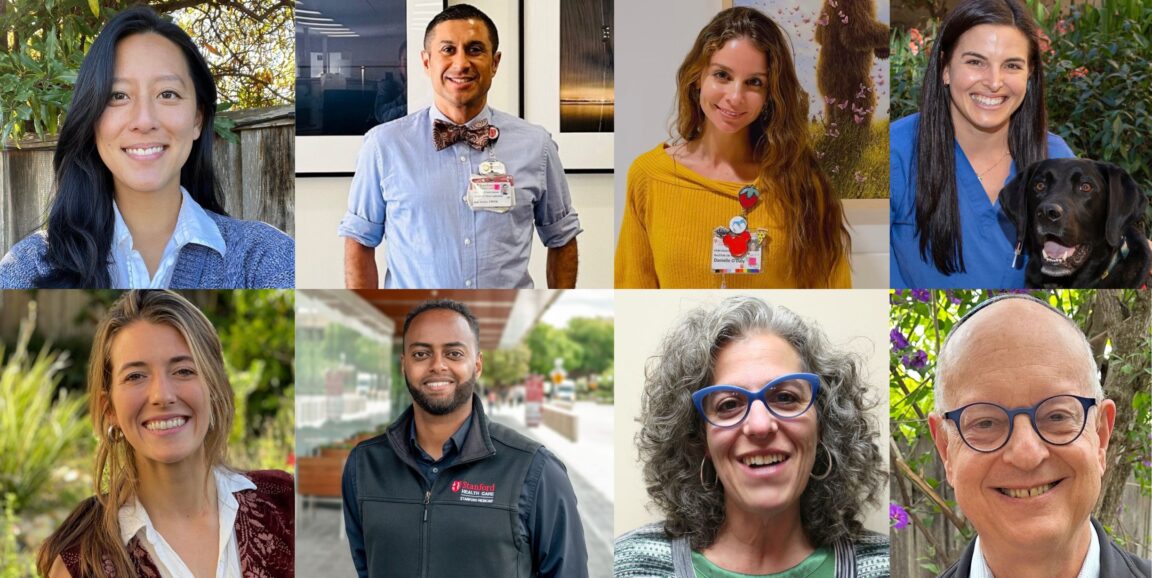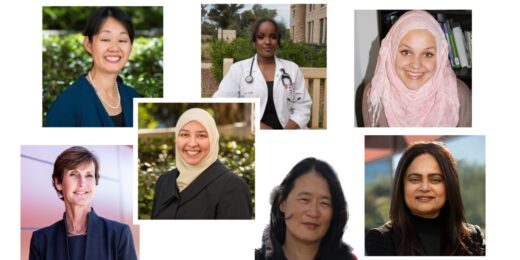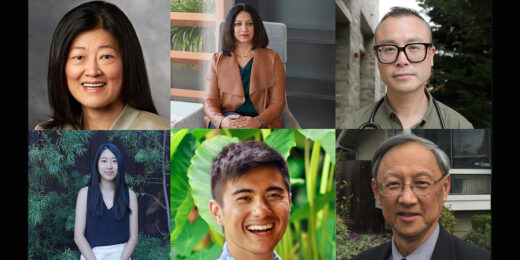This Is My Why is a series that explores the inspirations and motivations of Stanford Medicine researchers, clinicians, leaders, students and staff in their work and beyond.
In celebrating those who make immeasurable contributions to health care, we're featuring a cross-section of the people whose dedication and passion support the success of Stanford Medicine's hospitals. They span the array of functions that make up the heart and soul of Stanford Hospital and Lucile Packard Children's Hospital Stanford.
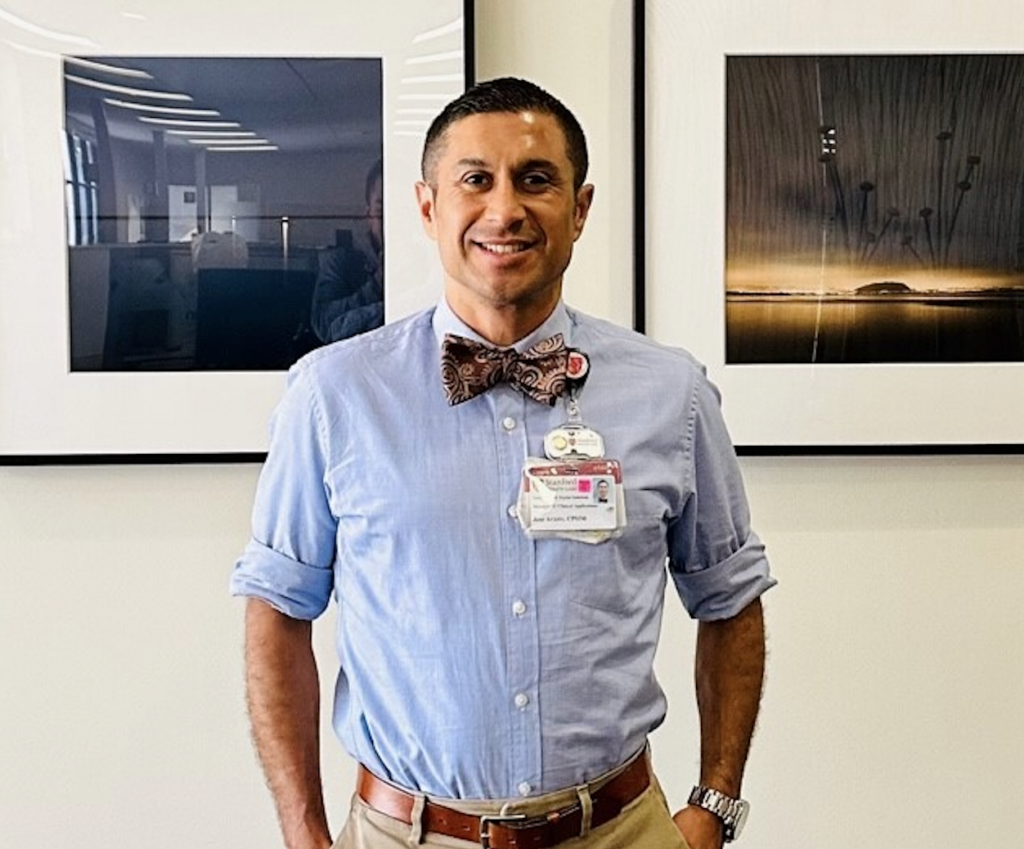
José Arzate, senior manager of inpatient clinical applications, technology and digital solutions
Arzate's team is responsible for keeping the complex technology that powers a hospital running smoothly -- a less visible yet crucial component in patient care. Arzate said he is thrilled to celebrate his 10-year anniversary with the TDS team, which manages the vast number of external clinical applications at two hospitals, two urgent care centers, two emergency departments and more than five medical office buildings.
"I believe in Stanford Health Care's mission and understand the importance clinical technology has in fulfilling our purpose to heal humanity through science and compassion, one patient at a time. When technology used in the delivery of care does not work as designed, it can negatively impact clinical outcomes and the patient experience. As a clinical information technology professional, I believe our work can positively affect our patients' healing, and this inspires me to do everything possible to ensure timely, quality care is delivered. I think about loved ones in the hospital, and how important it is to have care that is compassionate and thoughtful. Stanford Health Care's mission, my team, my leadership and operational colleagues who share my passion for helping humanity inspire me to go above and beyond each day."
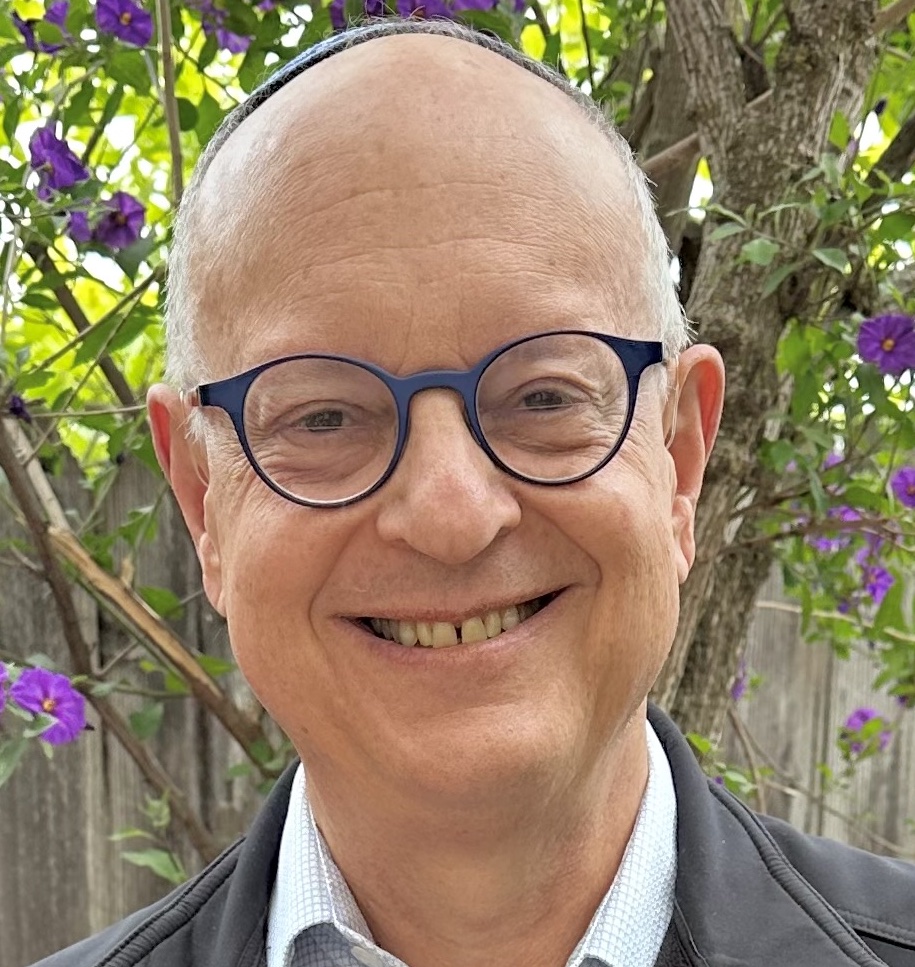
Bruce Feldstein MD, BCC, director of Jewish chaplaincy services
Feldstein and his team provide spiritual care to all Jewish patients and their families, from the beginning of life to the end of life. He also teaches spirituality, healing, reflection and well-being at the Stanford School of Medicine. Feldstein was an emergency medical doctor for 19 years before a back injury forced a unique career change and he became a chaplain. Because of his background as a physician, Feldstein is often called upon to counsel other physicians and nurses addressing the mental, physical, emotional and spiritual needs of a patient -- and to help them understand how relief and comfort fit into the system of care.
"As a chaplain, I serve on behalf of meaning, life, health and what is sacred, be it spiritual, religious, existential or scientific. As I prepare to encounter and accompany people, I focus my attention, then my intentions: May I join you in your world as it is for you. May I bring a quality of presence that allows you to connect with your sources of comfort, strength and meaning; of belonging, dignity and courage; of hope, faith and love. What matters for you is what matters for me. May I identify and respond, bringing all of my life experience as well as my training and expertise. May I be of service. May I be a blessing. These dimensions of our common humanity are the kinds of medicine that don't come in an IV or at the end of a scalpel. And when they are brought forth, a measure of healing happens."
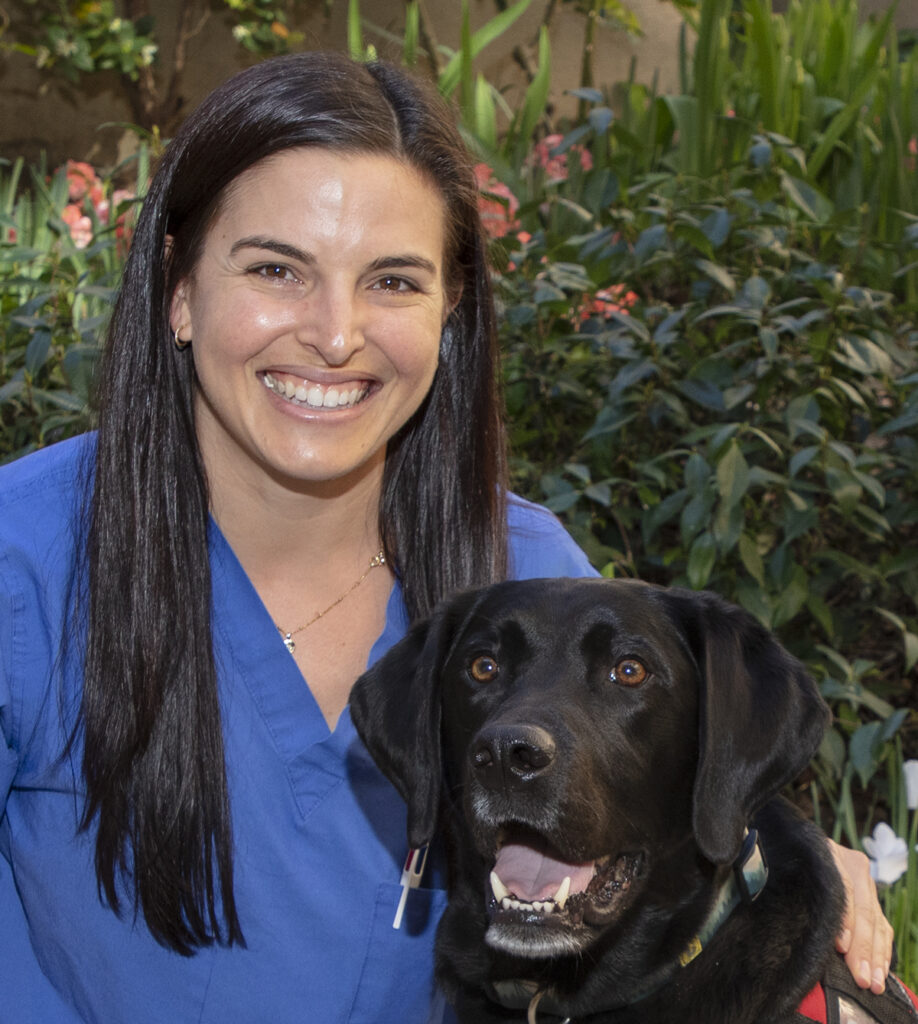
Alyssa Giacalone, lead physician assistant with the pediatric and congenital cardiothoracic surgery team at Stanford Children's Health and co-leader of the pet therapy program
Giacalone educates patients and families before surgery, mentors undergrad pre-med and pre-PA students, assists in the operating room, and makes it her job to help comfort families through one of the most stressful experiences of their lives. She co-founded the Packard Paws Pet Therapy Program in 2018 because of the dogs' ability to ease stress and anxiety in the patients, families and even the hospital staff. The non-judgmental, unconditional love from a dog instantly changes morale, she says. As a mentor she reminds students to be empathetic, to pay attention to small details and to "not forget that the patient is another human being."
"People always tell me they could never work with babies and children who are critically ill. But I always tell them that children are amazingly resilient and strong, and they often bounce back from some of the worst situations with a smile on their face. It is my responsibility to not only educate patients and families but also to earn their trust and help them feel like they are not alone on this journey. If I can be a familiar face during those scary times, I hope it brings them comfort that they know there is someone in their corner."
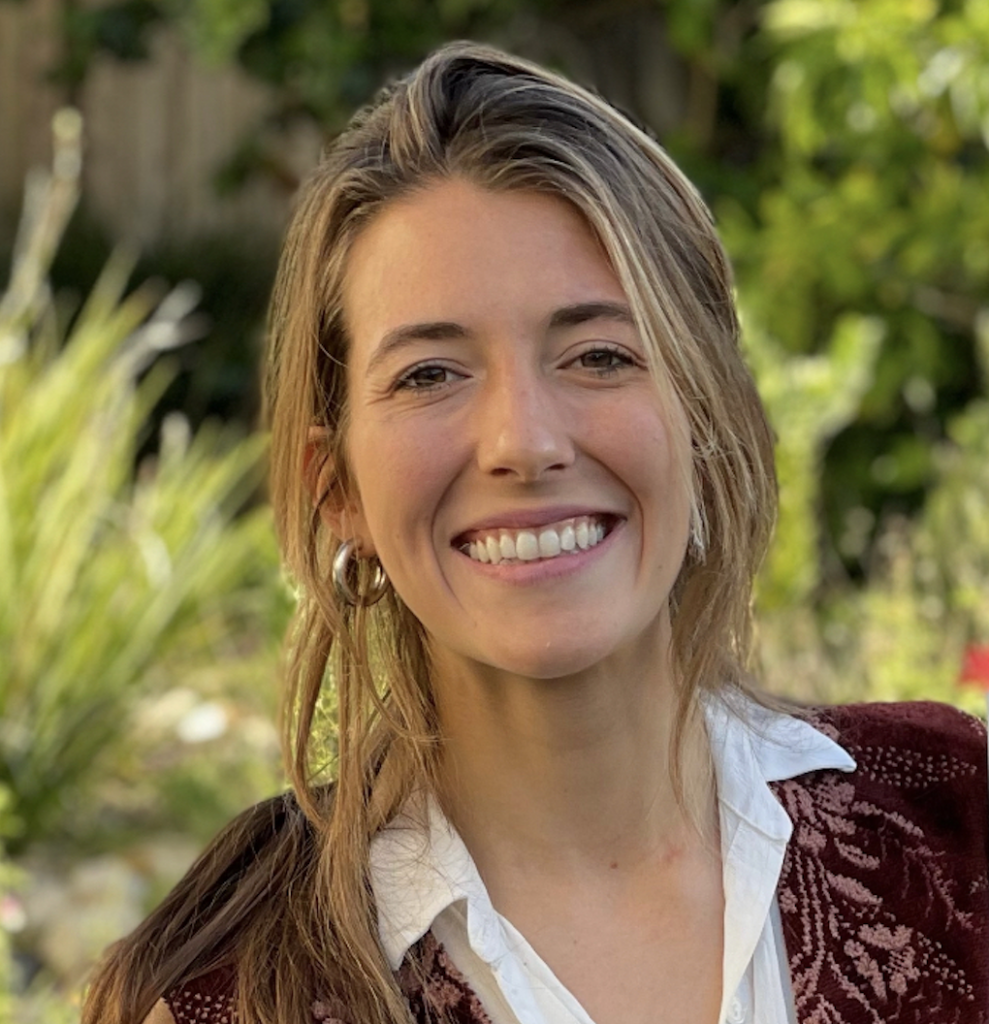
Fiona Gutierrez-Dewar, registered nurse
Gutierrez-Dewar works on an inpatient oncology and hematology unit at Stanford Hospital. She happens to know it well -- she was a patient herself in that exact ward just five years ago. She was 22 years old and had been diagnosed with non-Hodgkin's lymphoma. Immediately after finishing treatment, she knew nursing was her future. She enrolled in coursework to pursue her nursing degree, and a few years later, the same unit in which she was treated extended a job offer -- her first.
"I am incredibly passionate about the work I do at Stanford Health Care. I know what it is like to be on the receiving side of a cancer diagnosis and how meaningful the support of an exceptional medical team can be. When I hold my patients' hands and look into their eyes, I am fueled to work my absolute hardest to give them a second chance at life. I want every patient to have the positive experience I did, and to be cared for with the kindness, compassion and dignity they deserve in their fight against cancer. I take great pride in working for an institution like Stanford, where the care we are delivering is cutting edge and life saving. I am continually inspired by the expertise and commitment of my nursing colleagues, many of whom were my nurses when I was treated at Stanford Hospital not long ago. Their dedication to delivering compassionate care is unlike any other. If it wasn't for the life-saving care I received at Stanford Health Care, I would not be here today."
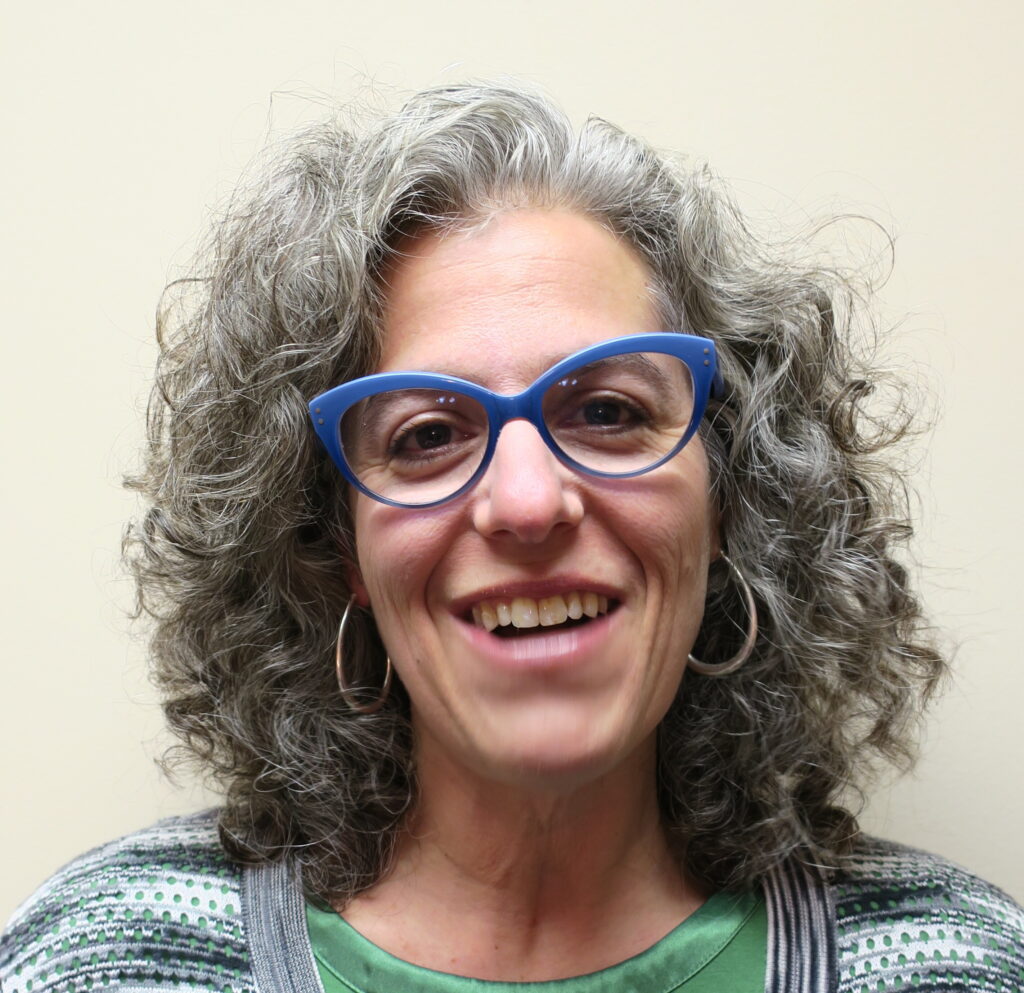
Gillian Kumagai, director of health libraries and community support
People grappling with an unfamiliar medical condition or new diagnosis need someone like Kumagai. Her job is to help others cut through the immensity of information available on the internet to overcome the overload, avoid misinformation and define medical jargon. She recognizes that people come to her during vulnerable periods in their lives -- whether it's facing a new diagnosis, living with a chronic condition, navigating the complexities of health care or something else.
"I'm passionate about helping people find credible health information, resources supporting whole-person care, and providing warm and welcoming spaces for all. Libraries give us a front-row seat to the human experience. As we explore what someone is looking for, stories beyond immediate health concerns naturally unfold. We also have formal storytelling initiatives to amplify the voices of our community, build connection, broaden perspectives and foster empathy. Hearing how information has empowered someone or how our listening provided comfort reinforces the vital role our libraries play in supporting the growth and well-being of the community. I walked into the library for an interview 18 years ago and knew I'd found my place. I was in awe. My awe continues to grow each day."
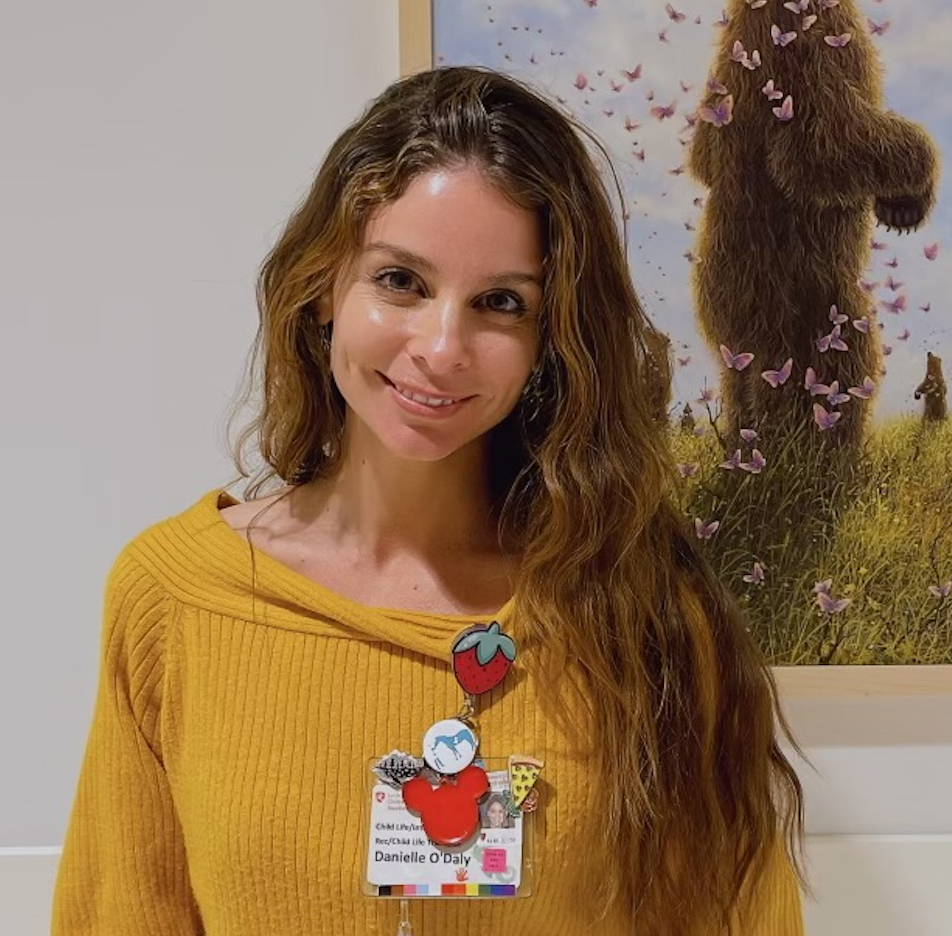
Danielle O'Daly, child life specialist
O'Daly's job revolves around reducing the stress and anxiety children and their families experience during treatments and hospitalization. She teaches them coping skills, preparing them for the experiences they will face. She meets children at their level and works with families based on their unique needs. O'Daly has been with Lucile Packard Children's Hospital Stanford for nearly seven years, mostly working with cardiac patients.
"Being in a hospital environment can be extremely isolating for patients and their families. My work is important to me because I am able to give children a sense of normalcy and help them navigate their hospital experience. We learn about each individual patient and cater to their specific interests and developmental needs, providing them with the best experience possible -- and being with them during a vulnerable moment in their life. What fuels me in my work is seeing the strength of the children, their resilience, and wanting to help in any way I can to decrease fear and provide them with meaningful experiences."
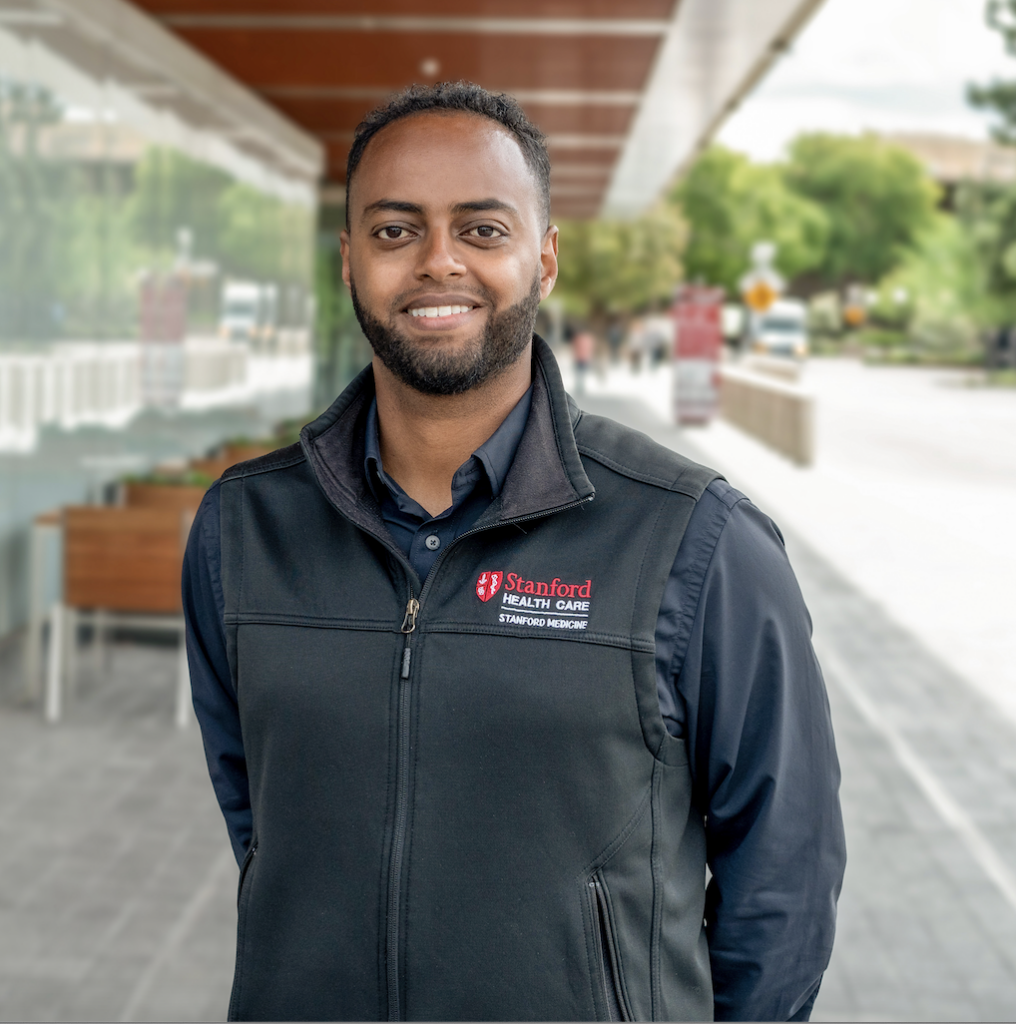
Rediet Tesfaye, director of transportation services
Tesfaye's job is to provide employees a range of alternative transportation options while promoting programs that encourage sustainable, environmentally friendly means of getting to and from Stanford Health Care. The pandemic disrupted efforts to shift people's behavior from solo driving, so Tesfaye's team is re-strategizing ways to demonstrate the financial, environmental and personal benefits of using alternative forms of transportation.
"One of the most rewarding aspects of my job is seeing the positive impact that these programs have on employees. The increasing number of employees taking advantage of the programs and recognizing the positive impact it has made in their personal and professional lives motivates me to do more. Ultimately, our efforts will not only contribute to the health of the environment but will also advance the quality of life for our employees."
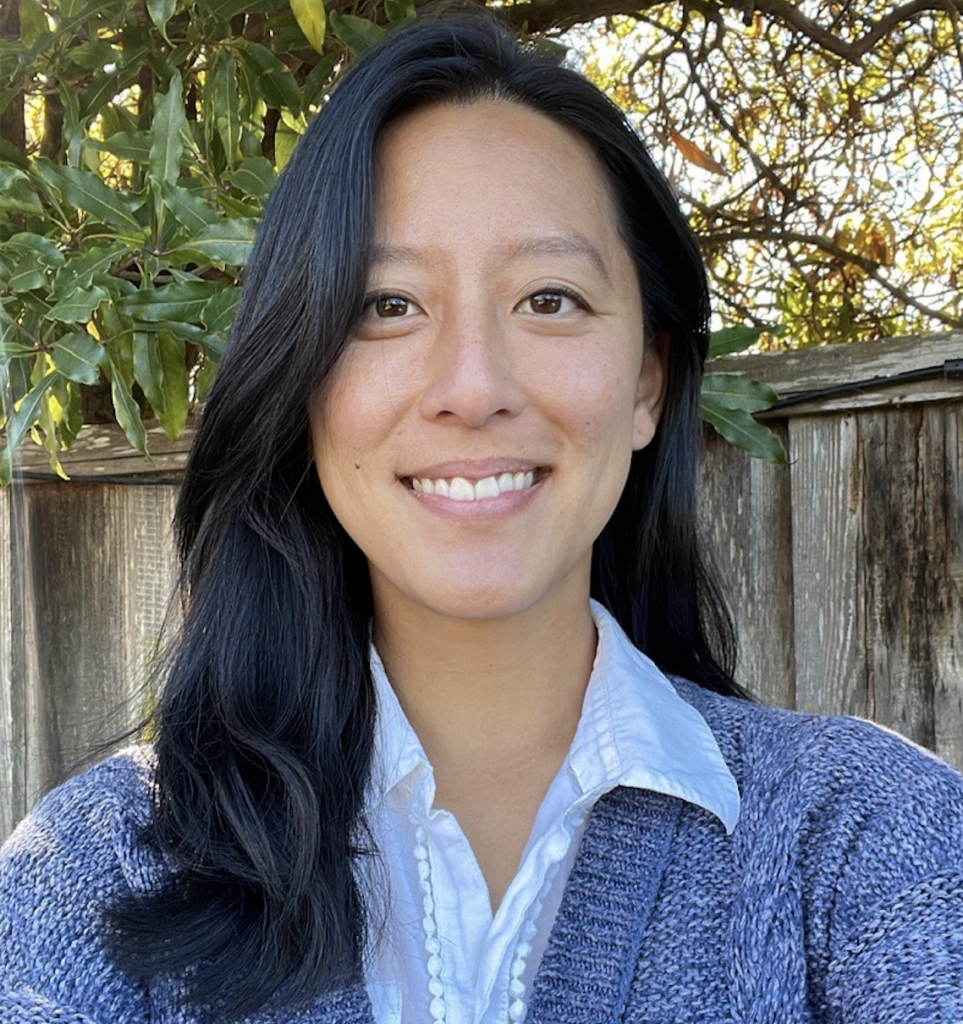
Jackie Wang, horticulturist and exterior management, department of transportation and grounds
Wang oversees, manages and guides the look and feel of the natural world of Stanford Hospital. She works closely with landscape contractors to refine maintenance standards, develop design plans for landscape renewals and work on plans for major projects. The exterior management group also partners with the Sustainability Program Office to identify and implement best practices for sustainable landscape opportunities.
"To me, working in the green industry means working with an endless supply of knowledge, passion and camaraderie. Every single person I have met in this field has been immensely generous in sharing their experiences. From working with contractors, to sourcing rare California native plant species, to collaborating with landscape architects on design approaches with new species, there is always something to learn or teach. The culture of our organization allows me the creative freedom to continue evolving the gardens and landscapes. #plantsarecool."
Collage by Margarita Gallardo


